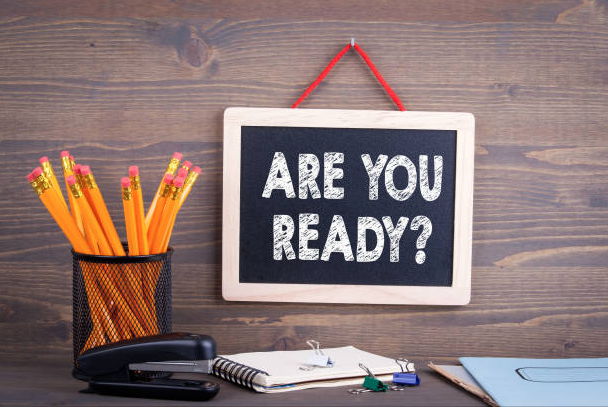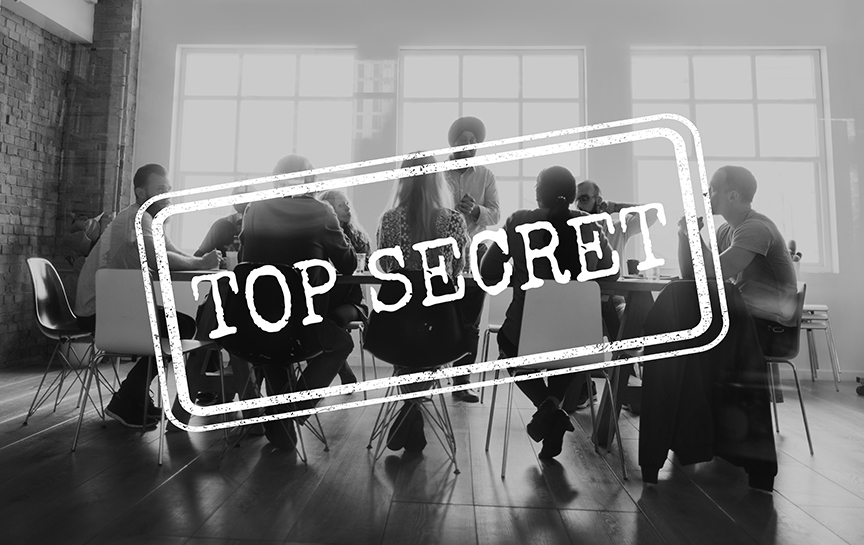 Viewing the EPPP in the right light to take the exam properly.
Viewing the EPPP in the right light to take the exam properly.
The EPPP (read: “E-triple-P”). The dreaded EPPP. I know I have made my best efforts to ignore it. Even so, it still looms in my future. And, dear readers, I assume it looms in your future as well. However, the Examination for the Professional Practice of Psychology does not need to be such a terrifying concept for us.
What is the EPPP, again?
The unknown is almost always scary, right? So to help alleviate some of the mystery behind the exam, lets delve into what the EPPP is exactly, and who needs to take the exam. This exam is geared for doctoral level psychology students is governed by the Association of State and Provincial Psychology Boards (ASPPB) [4]. At the time that this blog is being written the EPPP is a one-part exam that is to be taken over 4 ½ hours [1]. This exam includes 225 questions [1], of which only 175 are scored [2]. When the director of the ASPPB was asked about the test, she described it as “essentially everything you learned in graduate school” [6]. These questions cover a total of 8 domains in which we, as psychology graduates, are expected to be fluent [3]:
- biological bases of behavior
- cognitive affective bases of behavior
- social and multicultural bases of behavior
- growth and life-span development
- assessment and diagnosis
- treatment/intervention, prevention, and supervision
- research methods/statistics
- ethical, legal and professional issues
The EPPP is currently a one-part exam. However, there is a second part being developed at this time—and it is intended to be launched in January of 2020 [4, 5]. So, for those of you who will not be taking the exam for a couple years—heads up. The current form of the exam is intended to assess the basic and foundational skills necessary for early career psychology professionals to thrive on their own [5]. The second part of the exam is intended to examine the more practical skills needed to be a competent psychological professional [5]. It is anticipated that the EPPP Part 2 will assess the following areas [5].
- Scientific orientation
- Assessment and intervention
- Relational competence
- Professionalism
- Ethical practices
- Collaboration & consultation
- Supervisory practices
For a more detailed description of the EPPP, see our previous blog post “What is the EPPP?”
That’s not intimidating at all.
Now that we have a basic understanding of the EPPP, why don’t we dive into some tips to better view the EPPP:
Having a thorough and solid knowledge of psychology.
Ok, this one seems like a no-brainer. But still, many people are surprised about the breadth of information that needs to be mastered (or re-mastered) in order to be successful on this exam. Sources show that the information being covered in the exam covers practical things learned in experiences as recent as your internship to (seemingly ancient historical) concepts covered in some introductory undergraduate psychology courses [1].
Naturally, we all have those courses that we excelled at, and those classes that were a little more challenging. It is important to identify early on in your study process what you already know well and what could use a little more work [6]. Look through some study materials and practice exams in order to figure out what you know best and what needs to have the most of your attention. We’ll talk a little more about prioritization later in this post.
Develop solid study habits.
Another idea that might seem obvious, but nevertheless needs to be said. There are some unique aspects to studying for this exam. It is recommended that you start studying between 4-6 months before the exam [7]! Of course, this is no the absolute correct amount of time for everyone to study—there have been accounts of people studying for as much as a year prior to sitting for the exam and as little as just two weeks before the big day [1]. Although there isn’t an absolute when it comes to how much to study, too much is almost always better than too little when it comes to studying for the EPPP.
Scheduling Study Time
I encourage you to set a schedule of studying for yourself and stick to it. Too often when it comes to studying, procrastination is able to sneak in and rear its ugly head. I know I’m guilty. Fear not! Because in this situation, knowing this about yourself can be quite helpful. Of my acquaintances and friends who have taken the EPPP, most who have been successful have started slowly and escalated their studying as the test date approached. Most told me that if they had studied the information months in advance, they feared they would forget it before the test arrived.
Get a Study Buddy
Reach out to people in your cohort! Meet people in Facebook/social media-based support groups (might I suggest the search terms: “EPPP support”) [8]! Try for people in your professional organizations! Ask your friends, family, and loved ones! What about online forums, like The Student Doctor? Even if you feel like you typically study better alone, it might serve you to have someone with whom to go through this [1]. Isolation only serves to further the anxiety that you will inevitably have over this exam.
Find an accountability partner, even if they’re not going to be sitting for the exam. This was something that I used quite frequently in undergraduate. Find someone who will harass you or at least gently ask you whether or not you have been following through on your study goals. Because I am such a procrastinator, I needed someone who I would feel guilty telling that I put off studying or that I fell behind “because I had plenty of time”. If you think this might work for you, I highly encourage it!
Prioritize Topics
Like I mentioned above—one of the major keys to this exam is knowing what you don’t know [6]. Once you know what you don’t know, you’ll know what your weak points will be on the exam. Taking a practice exam to really illuminate those points may help [8]. Focus a majority of your time on the topics that you are less familiar with, or ones that you weren’t able to complete successfully on the practice exam.
That doesn’t mean to entirely ignore the concepts that you did well on. Make sure to keep those in your study routine as well. It is important to ensure that you don’t just replace the information that you had under your belt at one time with other information. Also, keeping information in the mix that you already have mastered has been shown to be reinforcing (thank you, behaviorists), and therefore keep your study sessions a little less dreadful.
It is also important to do research on the topics and percentages of the EPP that they will occupy [7]. Try to prioritize items that fit into categories that will take up the largest portion of the EPPP [7].
Use Professional and Commercial Study Tools.
Seriously. This one isn’t just a plug for our own study tools. Professional organizations that are dedicated to helping students pass licensure exams often have the inside track on what is going to be relevant to this year’s particular EPPP [8].
As a current graduate student, I am fully aware of the budget we have. I know that the study materials can seem like just another excess expense. In order to save money, ask your friends and colleagues if they have any old EPPP study materials that they might be willing to hand down [8]. However, it is important to remember that the EPPP is updated every year, and it is possible that materials that you buy from colleagues or marketplaces may be out of date by the time you get them [7]. At least when it comes to practice exams, I would recommend using the most current edition available [8, 9]. Just to get your feet wet, here are a couple of links to some *free* resources that AATBS offers:
Overall, it is important to remember that there really is no definite answer to how, with whom, or how long to study. You know yourself best. And give yourself a little credit—you’ve made it this far in your educational career, trust what’s worked for you.
Having Good Test-Taking Skills
I know you’ve studied. I know you’ve memorized everything there is to know from personality disorders to practical applications of theory. Nevertheless, your intelligence and competence won’t be demonstrated on the exam without a good strategy for taking the test [10].
Have a methodology to approaching the exam questions. You’re an aspiring scientist as well as clinician, right? Plus, I’m sure you remember those research and scientific methodology courses. This is just an extension of your scientific approach. Having a solid strategy will help you make the most out of the information that you studied and make sure that it is reflected well on the exam [10]. It is a timed test, but that doesn’t mean that you should try to answer everything as quickly as you can [10]. With some break time factored in to the 4 ½ hour time allotted for the exam, you will have about 55 seconds per question [10]—so take your time! Taking your time on the questions will actually help you save time, as you won’t need to go back and re-read questions in order to get what the question is asking you [10].
I know you’ve heard this before, and I know that it is printed on the exam itself, but it is extremely important that you read the questions on the EPPP carefully [10]. Many of the questions are written trickily. Several questions involve difficult language or double negatives, intended to trip up people who aren’t paying attention [10]. This goes back to what I was just saying—take your time and make sure you really understand the question.
Go with your gut [10]. Studies and statistics show that 80% of the time, the first choice that you make on the exam is the correct answer [10]. I know that it is tempting but try not to second guess yourself. Remember all that studying you did? Trust yourself—you were right the first time.
And of course, if you really don’t know, just take a guess! That’s right, ladies and gentlemen, on this exam it’s in your best interest to guess! [10]. On the EPPP, you only get awarded points for correctly answering questions; you are not deducted points or penalized for getting an answer wrong [10]. Making educated guesses at questions when you are not certain of the answer is an important test-taking skill on the EPPP.
Educated guessing is not random. The first step in doing so is eliminating answers that you know are wrong. On the EPPP, you will be presented with four possible answers to questions [10]. The more answers that you are able eliminate, the more likely you are to get the correct answer. Another important tenet of educated guessing is identifying and utilizing contextual clues [10]. Being able to pick out any particular theories or psychologists that are being noted in the question may help direct you to the correct answer [10].
Time Management Skills
So, we’ve talked about study skills and test-taking skills, but one of the most important skill sets you can have is time management (both for the EPPP and aside from that). Naturally, with graduate school and all the responsibilities that you need to juggle for it, I’m sure that you have developed some excellent time management skills. Even still, you need to develop a special set of skills for this exam.
First, as I mentioned before, you are in charge of your own 4 ½ hours to take the test [1]. That means that you can take it as slowly or as quickly as you would like. You can spend as much or as little time on each question as you would like. You are permitted to take breaks when (or if) you would like.
Since you know yourself best, it is recommended that you develop good stopping points for yourself during the study process. Since I recommend taking as many practice exams as you can get your hands on, over time in those practice exams, you will start to notice where the natural breaks are for yourself. I encourage you to take what you need to help keep your mind on track. Still, I want you to be mindful that this is still a timed exam, and therefore you will need to keep the countdown in the forefront of your mind.
AATBS has already developed a suggested time table for taking the EPPP—feel free to check it out. According to this schedule, you have about 55 seconds per question. To me, just because it is expressed in seconds, it sounds like an extremely short time. However, really think about how long a minute is… pretty long, right? Plenty of time to slowly read the question and think about what it is really asking you. Often times, we end up getting stressed out and rushing through questions faster than we need to. Remember, part of managing our own time is knowing how much time should be devoted to a particular question. If you know it right away, great! More time for the rest. If not, no worries! Take your time, read slowly, and utilize some of those great test taking skills we talked about earlier.
Secondly, developing a time schedule for studying is also imperative for success on the EPPP [1]. As I mentioned previously in the study habits portion, if you are like most graduate students (myself included), procrastination is your forte. In order to combat this to the best of our ability, experts have recommended that you set up a realistic study schedule for yourself and make every effort to keep it—notice that “realistic” is emphasized here. Anyone can make a study schedule, but if you’re not even close to on track with it, what good is it doing you? Being able to anticipate some of the daily life struggles and still plan around them with time to study is going to be a key to your success at this exam.
Stress Management Skills
Finally, learning how to manage your stress for this exam is also important. What good are you going to be come test time if you’re so stressed out you can’t even remember your name? With all this planning going on, it’s easy to get overwhelmed.
One major strategy that I suggest to combat this anxiety is getting connected. Like I mentioned before under “get a study buddy.” Reach out to people over Facebook, over the internet, in your cohort, in study groups, etc. Anywhere where you can get some support and somewhere to vent—take it! You’re going to need some outlet from all this stress.
Another excellent strategy is having a routine—and sticking to it! If you already have a pretty set routine, try to work your study time into that routine. Don’t upset your whole life just for the exam. Sure, it’s going to be a major piece of your vocational career, but it isn’t something that should make you hate everything else leading up to it.
Do you work out regularly? Do not give that up! Exercise has been shown to be a great stress reliever. And some studies have actually shown that keeping a regular exercise routine in place can help you do better on exams.
No matter what it is, find something that can help you escape the stress of this exam. It’s a major stressor in your life, and for many is the last major obstacle before you get licensed and embark in the world of psychology on your own! Anything that can help you escape that pressure will be a welcome relief—trust me!
Here’s a bonus tip:
Calm down. It’s going to be fine.
More than 80% of students who prepare and take the exam pass on their first attempt—so the odds are in your favor [1]. Even if you do not pass on the first go, it’s not the end of the world. It is simply a licensure exam, this doesn’t say anything about your intelligence or who you are as a person.
You’re a graduate student. You’ve taken a million exams before. You’ve made it this far. What’s one more? You know what works for you and you know what doesn’t. Now, get out there and crush it!
 Boost Your Ability to Memorize EPPP Material
Boost Your Ability to Memorize EPPP Material






